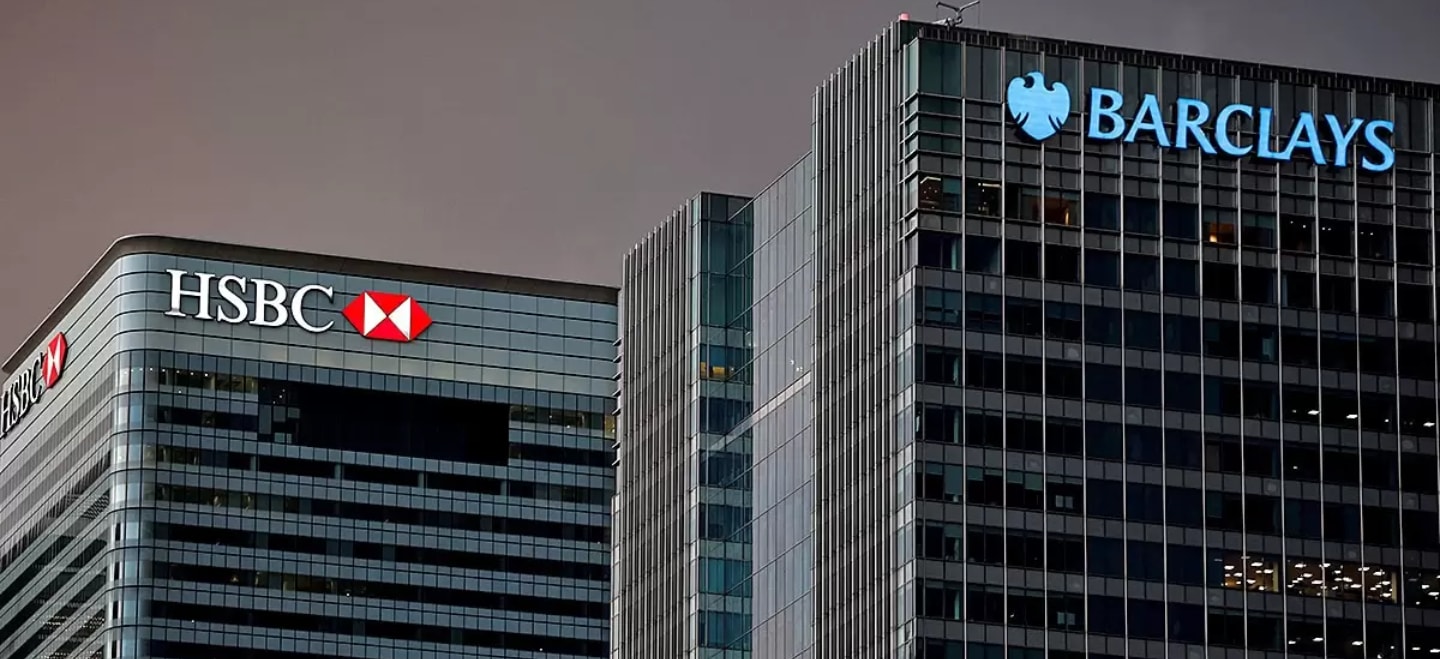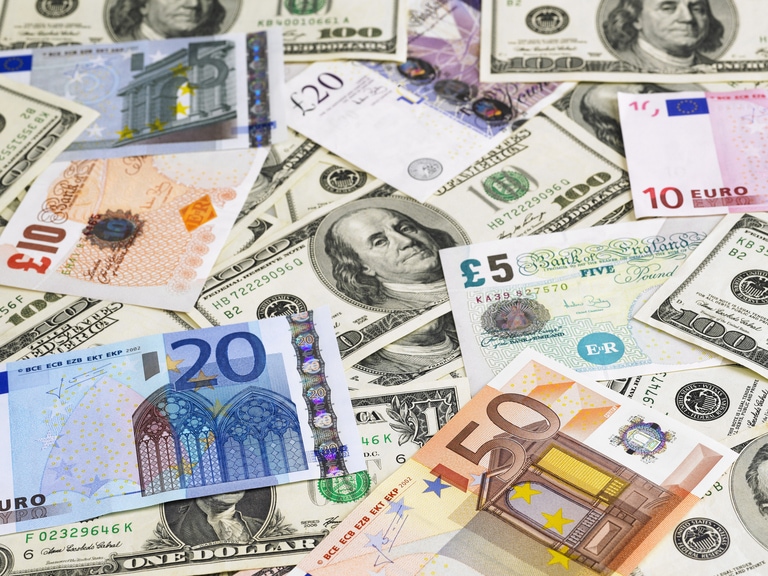It’s been a sea of red for European stocks today, with the banks feeling the heat of uncertainty that is currently rippling through markets. This uncertainty has served to see the banking sector give up all its gains for this year in the space of the past three weeks.
Europe
There doesn’t appear to have been an obvious catalyst for today’s move other than a slow-burning fuse of uncertainty over the prospect of future rate rises, and any effects they might have on financial stability. These concerns appear to have reached a tipping point ahead of the weekend, with the likes of Deutsche Bank feeling the hit more than most with its shares down over 14% at one point during the day.
Other banks are also feeling the heat over concerns about the impact of higher rates on their balance sheet, as well as further worries over the effects that higher rates might have on the rest of the economy. ECB president Christine Lagarde’s comments that there was no trade-off for ECB policymakers between the central bank's mandate on prices, and financial stability may well also be playing a part. It seems that markets are looking to test that assertion given that there is always a trade-off between prices and financial stability, whether central bankers want to admit it or not. No self-respecting central bank is going to carry on hiking rates if it causes a meltdown in the financial system or wider economy, and to pretend otherwise is not credible. Bond yields are falling sharply in a manner that appears to reflect the prospect that central banks may be forced to cut rights as soon as the end of this year.
UBS and Credit Suisse shares are getting clobbered on reports that CS and therefore ergo UBS could face a US DOJ probe into allegations that Swiss banks helped Russian oligarchs evade sanctions.
The FTSE 100 has had a particularly rough time of it losing all its gains for this year in the past two weeks on the back of the weakness in banks, with Barclays shares down over 15% year to date, while the recent weakness in energy prices is weighing on BP and Shell.
This weakness has overshadowed the better-than-expected economic data that we’ve seen this week as UK retail sales in February posted their second successive monthly gain, pointing to the prospect that the UK economy for all its problems is in much better shape than was thought was likely at the end of last year.
There have been silver linings to today’s sell-off with Smith’s Group shares higher after reporting H1 results that were better than expected. Full-year revenues rose 13.5% to just shy of £1.5bn, boosting operating profits to £241m, a rise of 12.7%. The company also raised its guidance for 2023 to at least 8% organic revenue growth, with moderate margin improvement.
For all the pessimism about the pubs and general hospitality sector, the latest H1 numbers from pub chain JD Wetherspoon are a beacon of positivity, with like-for-like sales rising 5% and revenues rising 3% to £916m from 2019 levels. The comparatives were even more favourable from a year ago with like-for-like sales up 13%, helping to push the shares to their highest levels since last summer.
We also saw a return to profit, and although these are still 90% below 2019 levels at £4.6m, we do appear to be seeing signs of a stabilisation in the sector, as supply chain pressures ease. Of course, that doesn’t mean the sector doesn’t face challenges with energy prices remaining a key headwind. CEO Tim Martin said that current trade was 9.1% above the same period in 2019 and 14.9% above the same period a year ago.
US
The sharp sell-off being seen in Europe has seeped into US markets, which opened lower today with US banks acting as a drag on the wider market, with weakness in the likes of JPMorgan Chase, Goldman Sachs, Citigroup, and American Express.
The latest US manufacturing and services PMIs showed that the US economy continued to improve in March, although as in Europe manufacturing was still in contraction at 49.3. Services showed a strong recovery to 53.8 from 50.3.
Activision shares have edged higher after the UK’s CMA dropped some of its concerns over Microsoft's acquisition of the “Call of Duty” maker after feedback from its initial investigations into the deal.
FX
The US dollar is serving as a haven again along with the Japanese yen as weakness in equity markets prompts a flight to the safety of cash.
The euro has also come under pressure as concerns over the wider banking sector weigh on sentiment, and markets cast doubt on the ECB’s ability to deliver further rate hikes. There is also widespread scepticism over ECB President Christine Lagarde’s claim that there is no trade-off between price stability and financial stability when it comes to monetary policy. If the move in bond yields is any guide no one is buying that argument for one moment. No central bank is going to carry on hiking rates if it causes a meltdown in the financial system or wider economy and to pretend otherwise is disingenuous.
Commodities
Crude oil prices have slipped back, in the wake of today’s market weakness, with uncertainty rising over future demand, as well as a reluctance of the US to commit to refilling its SPR, which it said it would originally do when prices dropped below $70 a barrel.
Brent crude oil prices look set to retest the lows of earlier this month, although, on the plus side, lower prices do mean that the pressure on the consumer does ease when it comes to filling up at the pump, while the wider economic data continues to hold up reasonably well.
Despite the slide in yields gold prices haven’t been able to sustain a move above the $2,000 an ounce mark which it tried to move above yesterday. There have been three failed attempts to close above the level this week.






